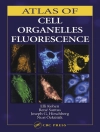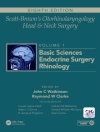In this important new textbook all scientific and clinical aspects of orthodontic materials are described. Recent developments in science and technology have led to the introduction of a plethora of new orthodontic products. This work serves as an excellent source of information for a field that requires knowledge of basic elements of materials science, engineering, chemistry, and physics, as well as clinical orthodontics. The subject has been part of graduate orthodontic education for almost three decades. Besides servicing the orthodontic training programs, the book also: investigates the interactions of orthodontic materials with other dental materials as well as hard tissues in the oral cavity, gives a background to allow for proper material selection for efficient orthodontic mechanics, and treats the issues of biocompatibility, cytotoxicity and mutagenicity of materials.
Table des matières
1 Structures and Properties of Orthodontic Materials
2 Mechanics and Mechanical Testing of Orthodontic Materials
3 Instrumental Techniques for Study of Orthodontic Materials
4 Orthodontic Wires
5 Enamel Etching and Bond Strength
6 Oral Microbiological Changes, Long-Term Enamel Alterations Due to Decalcification, and Caries Prophylactic Aspects
7 Orthodontic Brackets
8 Elastomeric Ligatures and Chains
9 Orthodontic Adhesive Resins and Composites: Principles of Adhesion
10 Orthodontic Adhesive Resins
11 Cements in Orthodontics
12 Impression Materials
13 Bonding to Non-Conventional Surfaces
14 Principles of Biocompatibility
15 Allergic Reactions and Safety Concerns
Appendix
Figure and Table Credits
Index
A propos de l’auteur
William A. Brantley, Theodore Eliades












